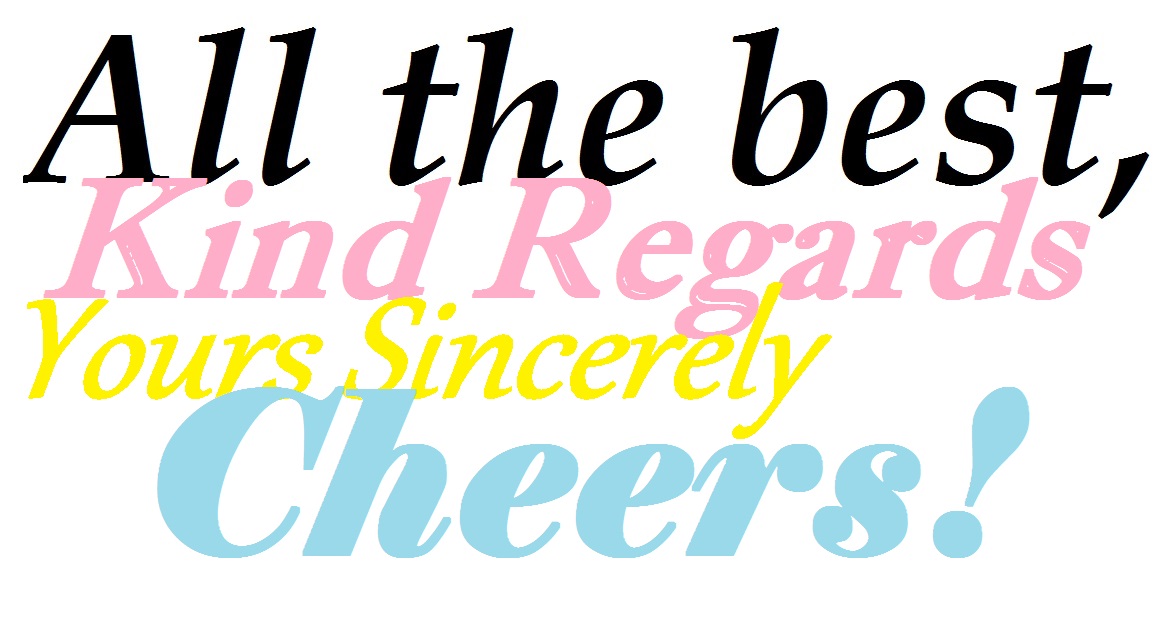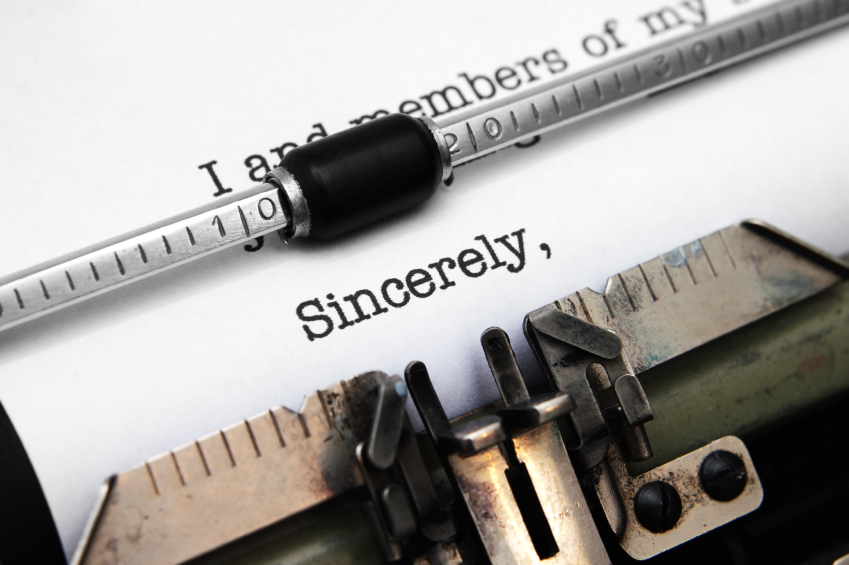About a year ago, I read a very interesting article by Matthew Malady, about his hatred for (and subsequent revolt against) email sign-offs.
Malady argued that these “ridiculous variations” are useless-even harmful-because they waste valuable time.
I’ve thought a lot about Malady’s comments over the past year. His article made me laugh, and I could definitely see value in some of his points. But in the end, I’m a strong believer in the opposite opinion.
I have a passion for the art of communicating subtleties through writing. I don’t claim to be an expert on this topic. (As Guy Kawasaki says, " Experts are useless.") But in the past year, I’ve connected with persons in and out of my industry, great leads, best-selling authors, a world-famous song artist, a very popular movie actress, a well-known entrepreneur/television personality, and a whole lot of interesting people. These connections were all made through cold emails, and they’ve led to some great opportunities. (The column you’re reading developed through a great relationship that began as a “cold” connection request on LinkedIn.) I often receive comments such as: “Thank you for such a great introduction” and “Really appreciate the way you reached out.”
Where am I going with this?
You’re trying to build (or maintain) a relationship with the people you mail. Just as you would normally not end a spoken conversation without saying goodbye, you shouldn’t do it with email (barring a few exceptions). Granted, the sign-off is just a small part of your message. What’s most important is having something to say that is interesting, sincere, and not focused solely on you.
That being said, the sign-off is the last thing the recipient reads-so it can be the “cherry on top,” so to speak. Done right, it’s like the motivating conclusion at the end of a really great presentation.
Because of this, I always take a few extra seconds to consider how I want to end my emails. Over the past few months, I took a closer look at my outbox and drew some conclusions regarding how I use sign-offs.
Here’s what I found:
Regards
One of the simplest, most common ways to sign off, but percentage-wise, I don’t use it that often. Mainly if I’m communicating quick information, or if I’ve already done something nice in the email and I don’t want to overdo it. For example, I sent the following message to someone I met recently on LinkedIn:
Hi, ____,
Really enjoyed your article on recruiting (found on Twitter). Will share later today.
Regards,
Justin

Best Regards
I use this one a lot more, often when relationships are new. I view it as a step up from “Regards.”
Kind Regards
I use this one, too, because I think everyone should be kind. I seem to use it often with women, albeit subconsciously. (I believe this stems from my parents’ attempts to teach me chivalry.) I also use “Warm regards” occasionally, but with persons I know better.
Best
This is for variety-an alternative to “Best regards.” Now that it’s ubiquitous, I use it much less.
Sincerely
I use “Sincerely” when I’m reaching out to someone who may feel I’m trying to take advantage, or who will hold the (perceptibly) less advantageous position in our relationship. I also use it if I'm giving a compliment and I’m afraid the person might question my motives.
Of course, the key here is to be truly sincere-but ending with “Sincerely” helps the recipient to consider that effort. Here’s an email I sent some time ago to a LinkedIn influencer:
Hi, ___,
I was hoping I might actually connect with you. Then I noticed you have more than 200,000 followers here on LinkedIn.
Hmm. Still worth a try?
I’m a big fan of your work, and the story of “working your way up” resonated with me. Thanks for the inspiration and excellent writing.
Sincerely,
Justin Bariso
This influencer accepted my request. He has given me invaluable advice over the past year and is now my writing and publishing mentor.

Best Wishes
If I don’t plan on seeing or hearing from this person in a while.
Take Care
Like “Best wishes,” but if I’m closer with the recipient.
Thanks
A substitute for “Regards,” if someone did something for me.
Thank You, Sincere Thanks, Many Thanks, Much Appreciated
Same as “Thanks,” but the favor was much bigger.
Respectfully
I might use this one if I’m speaking to a person of authority (or a person much older than me), especially if I’m disagreeing with him or her on something.
Talk Soon
For friends and closer colleagues.
Hope This Helps, Hope to See You Soon, Great Hearing From You
These are my attempts to turn what would normally be a closing line of an email into a sign-off, for variety’s sake.
Your Friend
For friends. Obviously.

Peace Out, Your Brotha, Your Boy, Your Compadre
Same as “Your friend,” but shows a little more of my personality. I would never recommend you use these (unless you use them in everyday speech, like me), but using closing lines that are unique to you can help “keep it real.” According to this article in Forbes, one publicist who handles tech clients uses “High five from down low.” The author of the article hated it, but I love it.
Cheers
This one migrated from Britain, and many people like it—informal and positive. I never use it, though. Just not me.
Nothing
As I alluded to earlier, there are times when I use no sign-off. This is when I have a good closing line already that is sincere and specific. For example:
Thank you for this-it’s definitely
appreciated.
Justin
(German) Mit Freundlichen Gruessen
Here’s one for fun. I currently live in Germany, and this is the sign-off of choice for most Germans. It is translated literally: “With friendly greetings.” The funny thing is, even when someone sends you a message that’s meant to be totally intimidating or is trying to rock you for being an idiot, they still end it with this. So you end up getting emails like this one:
Dear Mr. Schmidt,
We are writing to inform you that your recent actions regarding ___ are deemed unacceptable. If you do not act immediately to rectify this situation, we will be forced to take legal action. You have seven days to comply with our request.
With friendly
greetings,
(The company that hates you)
(Now that I think about it, this is the perfect ending for this email.)
Remember, the email send-off is the final word, the spark that can
reinforce the tone of your message, that gentle push to get the
recipient to act in your favor. Try taking a few extra seconds to
consider yours. What can you lose?
Those few extra seconds can reap great benefits.
Your compadre,
Justin Bariso